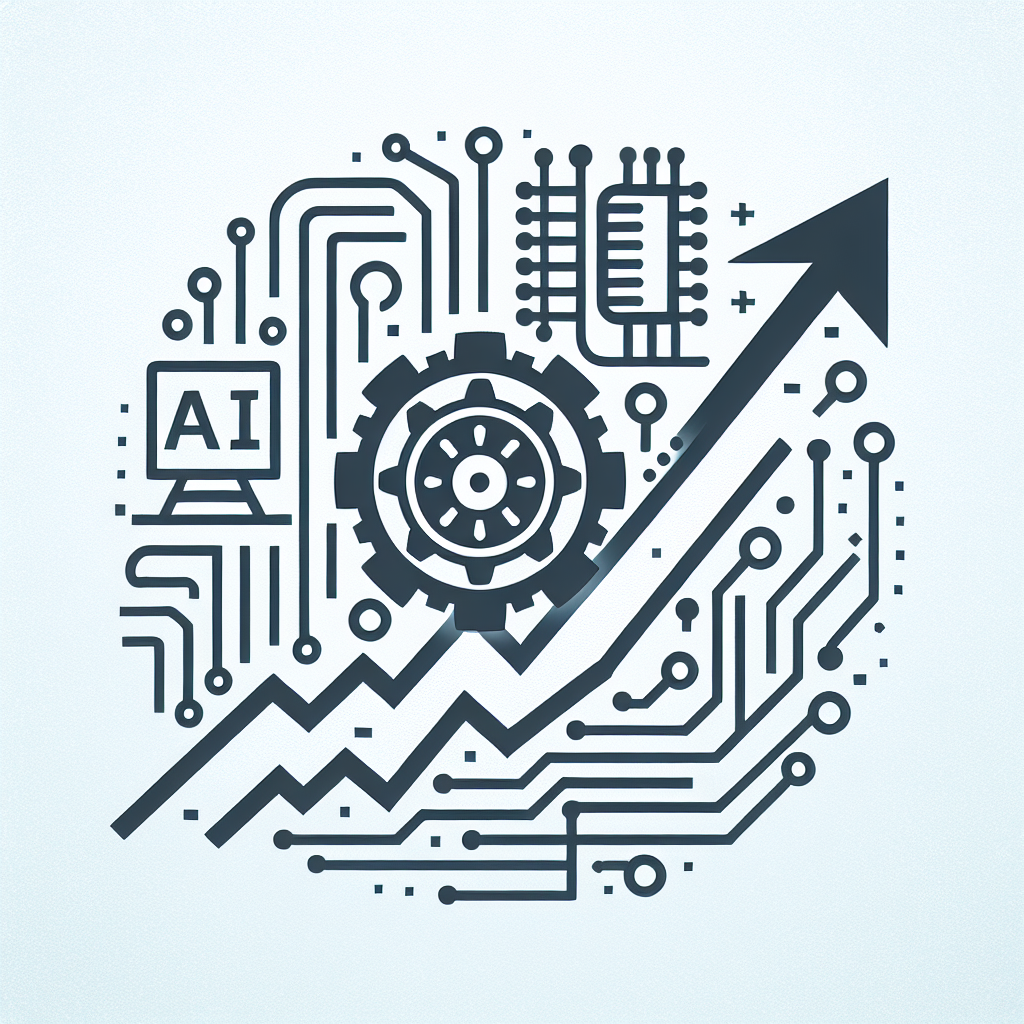Introduction
Artificial Intelligence (AI) has revolutionized many industries in recent years, and one area where its impact is particularly significant is operational efficiency. AI automation has the potential to streamline processes, reduce costs, and improve productivity in various operational functions. In this article, we will explore how AI automation is transforming operational efficiency and the benefits it brings to businesses.
How AI Automation Improves Operational Efficiency
1. Streamlining Processes
One of the key benefits of AI automation is its ability to streamline processes by automating repetitive and time-consuming tasks. AI-powered systems can analyze data, make decisions, and execute tasks much faster and more accurately than humans, leading to significant time and cost savings. For example, in supply chain management, AI can optimize inventory levels, forecast demand, and automate order processing, leading to more efficient and cost-effective operations.
2. Enhancing Decision-Making
AI automation can also improve decision-making by providing real-time insights and recommendations based on data analysis. AI algorithms can analyze large volumes of data quickly and accurately to identify patterns, trends, and anomalies that humans may overlook. This enables businesses to make more informed decisions that are based on data-driven insights, leading to better outcomes and improved operational efficiency.
3. Reducing Errors
Human error is a common cause of inefficiencies in operational processes. AI automation can help reduce errors by eliminating manual data entry, automating quality control processes, and flagging potential issues before they escalate. By minimizing errors, businesses can improve the quality and reliability of their operations, leading to increased efficiency and customer satisfaction.
4. Increasing Productivity
AI automation can also boost productivity by freeing up employees from repetitive tasks and allowing them to focus on more strategic and value-added activities. By automating routine tasks such as data entry, data processing, and report generation, AI can help employees work more efficiently and effectively, leading to higher productivity and overall performance.
5. Improving Customer Experience
AI automation can enhance the customer experience by providing personalized and timely responses to customer inquiries, automating order processing and delivery, and predicting customer needs and preferences. By leveraging AI technologies such as chatbots, recommendation engines, and predictive analytics, businesses can deliver a more seamless and personalized experience to their customers, leading to increased satisfaction and loyalty.
6. Optimizing Resource Allocation
AI automation can help businesses optimize resource allocation by analyzing data and identifying opportunities for cost savings and efficiency improvements. By automating tasks such as resource planning, scheduling, and allocation, AI can help businesses allocate resources more effectively, reduce waste, and maximize the utilization of assets, leading to improved operational efficiency and financial performance.
7. Enabling Predictive Maintenance
AI automation can enable predictive maintenance by analyzing data from sensors, machines, and equipment to predict when maintenance is needed before a breakdown occurs. By using AI algorithms to analyze historical data, detect patterns, and predict potential failures, businesses can proactively address maintenance issues, reduce downtime, and optimize equipment performance, leading to improved operational efficiency and cost savings.
Frequently Asked Questions (FAQs)
Q: What are some examples of AI automation in operational efficiency?
A: Some examples of AI automation in operational efficiency include supply chain optimization, predictive maintenance, customer service automation, and resource allocation optimization.
Q: How can businesses implement AI automation in their operations?
A: Businesses can implement AI automation in their operations by leveraging AI technologies such as machine learning, natural language processing, robotics, and cognitive automation. They can also partner with AI vendors or hire AI specialists to develop and deploy AI solutions tailored to their specific needs.
Q: What are the benefits of AI automation in operational efficiency?
A: The benefits of AI automation in operational efficiency include streamlined processes, enhanced decision-making, reduced errors, increased productivity, improved customer experience, optimized resource allocation, and predictive maintenance.
Q: What are the challenges of implementing AI automation in operational efficiency?
A: Some challenges of implementing AI automation in operational efficiency include data quality and availability, integration with existing systems, employee resistance to change, and the need for specialized skills and expertise.
Q: How can businesses measure the impact of AI automation on operational efficiency?
A: Businesses can measure the impact of AI automation on operational efficiency by tracking key performance indicators such as cost savings, productivity improvements, error reduction, customer satisfaction, and equipment uptime. They can also conduct regular audits and assessments to evaluate the effectiveness of AI automation in achieving operational goals.
Conclusion
AI automation is transforming operational efficiency by streamlining processes, enhancing decision-making, reducing errors, increasing productivity, improving customer experience, optimizing resource allocation, and enabling predictive maintenance. Businesses that leverage AI technologies in their operations stand to gain a competitive edge by achieving cost savings, efficiency improvements, and better outcomes. By embracing AI automation, businesses can unlock new opportunities for growth, innovation, and success in today’s fast-paced and competitive business environment.

